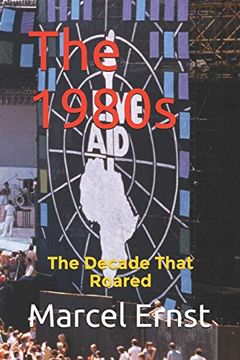Reseña del libro "The 1980S: The Decade That Roared (Decades) (en Inglés)"
Unlike the two decades that preceded them, the 1980s recorded a clear upward curve from early anxiety towards relaxation and renewed confidence, and finally euphoria. That happened to a good extent thanks to the efforts of one man: Mikhail Gorbachev. After a shaky start in the spring of 1985, he proceeded to charm Western heads of state with his open-mindedness and smile. It was anyone’s guess whether his predecessor Yuri Andropov, who passed away in 1984, had foreseen how his protégé would develop. Nevertheless, the fact remains that without Andropov’s goodwill, the world would probably never have experienced Gorbachev. The last Soviet leader certainly was not the only international star in the 1980s. He would share that stage with Margaret Thatcher, the UK’s forceful first female PM, and US President Ronald Reagan, the “great communicator.” That said, without Gorbachev there would not have been any Glasnost (openness), Perestroika (restructuring), or end to the Cold War by the decade’s end. Despite some setbacks and significant challenges – the AIDS crisis foremost among them – the 1980s offered progress where there had been stagnation before. The Sixties ended in chaos and disillusionment, and the Seventies with an energy crisis and the Iranian Hostage Taking. Between 1980 and 1989, computer power went up, and so went employment and the choice of diversions (music videos foremost among them, a new art form). International cooperation saw important breakthroughs: with the 1985 Live Aid Concerts, disarmament treaties signalling steps back from the nuclear brink, and the pivotal 1987 Montreal Accord which phased out CFCs that destroyed the ozone layer. Each of these landmark events would present enough fodder for a book on their own. Today most people remember the 1980s by how they ended: burying the Cold War. They often forget (or choose to overlook) the continuing challenges of AIDS, militarization in the developing world, Middle East volatility, environmental degradation, and world poverty. Since then the last of these issues has been slightly alleviated with the UN development initiative. The others remain, having surfaced that decade but unresolved. The 1980s also saw the Challenger disaster, Chernobyl, and the Exxon Valdez Spill. Such events increased awareness of the environmental impact of conventional affluent lifestyles. Yet, the spirit of Live Aid in the summer of 1985 made many of us around the world believe, at least for a while, that we could solve all problems, if we only tried hard enough. That sense of can-do optimism remains the greatest legacy of the 1980s. It has not been equalled since.Part one of the book deals with settings and events, from the computer revolution to the thaw in the Cold War. Part two explores some of the movers and shakers who made headlines, occasionally in inglorious ways – including Khomeini and Gorbachev. Part three delves into the decade’s legacies, including 1989, the decade’s glorious finale that merits separate treatment. That part’s structure is more chronological than parts one and two. Sometimes, events unfolded like the petals of a flower, at other times more like a pot boiling over. 1989 brought the forty-year Cold War to an end; whether the New World Order that replaced it has been superior remains subject to debate. Above all, the decade taught the lesson that openness trumps closed societies and walls (pun intended), and building bridges better serves the welfare of the whole human race, regardless of faith, gender, ethnicity or wealth.

